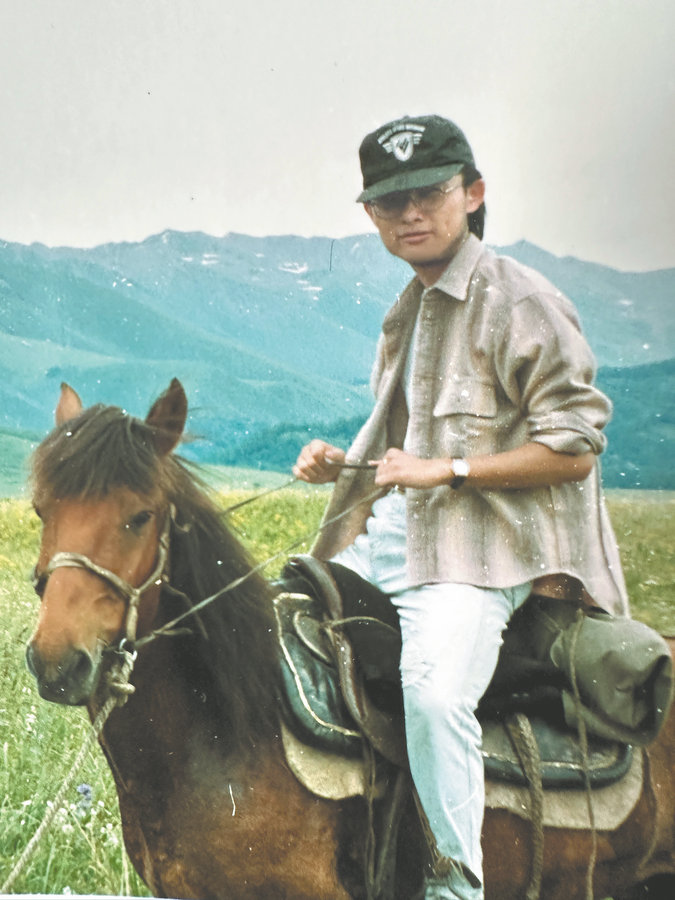

In this second season, Wang notes, they leaned further into the travel experience by having the guests act as travel agency staff, curating custom itineraries for their clients. This twist, he adds, brings a fresh perspective and a new level of engagement for viewers.
Meng and Liu have been friends for years and their previous travels together in the first season only strengthened their bond. This season, their exchanges, whether thoughtful discussions or lighthearted banter, have become a standout feature of the show.
The show's leading scriptwriter Li Juan likens their journey to reading a book: Meng's remarks serve as the underlined highlights while Liu's words are the lingering reflections that stay with you long after.
For example, during a visit to the Subashi Buddhist Temple in Kuqa, a county-level city in Aksu, the guests come across an inscription linked to Buddhist monk and scholar Kumarajiva (343/44-413).In a playful segment, they guess which phrases might have been translated by the Buddhist master. "Viewers may be surprised to recognize many of these words still in use today, creating a moment of connection with history," Li notes.
Li shares that Meng naturally bonds with younger guests while Liu's spirited debates with him add an engaging dynamic to the show.
"Our goal is to fuse culture and travel," Li says. "It's Liu's cultural insights paired with Meng's travel expertise that create an organic blend of these two fields."
General director Zhang Long says that the decision to feature Xinjiang and Uzbekistan this season stemmed from Xinjiang's rising popularity as a tourist destination, offering a rich mix of cultural diversity and breathtaking landscapes. "Turpan in August, the thousand shades of blue in Uzbekistan — these are destinations that truly deserve to be visited," he says.
"We realized that the route we selected overlaps with Xuan Zang's historic westward journey, adding natural beauty and cultural storytelling to the trip," Zhang notes. "Xuan Zang's pilgrimage may be China's earliest example of independent travel."
The production team carefully scouted each location, curating key highlights to create a comprehensive travel guide for the guests. Zhang points out that Uzbekistan, a relatively unfamiliar destination, added an element of excitement to the journey.
In Uzbekistan, the show used The Golden Peaches of Samarkand, a book about goods that traveled from the Silk Road to the Tang Dynasty, as a framework for the guests to explore the echoes of the Tang Dynasty in Samarkand.
"In a local museum, the guests discovered a mural depicting Tang Dynasty figures rowing dragon boats, which represents the Dragon Boat Festival," Zhang shares. At another museum, they viewed an ancient map of the Silk Road, seen through the eyes of foreigners, showcasing familiar Chinese place names.
"That mural deeply moved me," Zhang says. "The exhibits in Uzbekistan highlighted the rich history of cultural exchange. I believe this is the true meaning of the Silk Road: people from different cultures coming together to trade goods and share knowledge. That was the most profound takeaway from this journey."
Zhang also observes the growing enthusiasm for learning Chinese in the region. "A significant number of young people in Uzbekistan are studying Chinese, hoping for better job potential. Many teenagers plan to attend Chinese universities," he says.